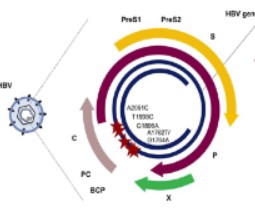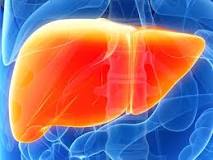Liver Diseases, Cancers, and Research
Our Center for Liver Investigation Fostering discovEry (C-LIFE) is a comprehensive multi-disciplinary Liver Clinical & Translational Research Center. Our faculty are at the forefront of diagnosing and treating patients with chronic liver diseases, advancing our understanding of transplant management, and basic, translational, and clinical research in liver diseases. The University of Washington School of Medicine housed one of just a few hepatitis C research centers in the nation funded by the National Institute of Health and was designated as one of the nation’s four Centers of Excellence in Hepatitis C. Research now includes basic, translational, and clinical investigation in non-alcoholic fatty liver disease, alcohol-associated liver disease, cholestatic liver diseases, and liver cancer (hepatocellular carcinoma), including the elimination of disparities in early detection of HCC in Alaska Native and American Indian people.
Liver properties
The liver is the single largest internal organ in the human body and serves essential and vital functions. It synthesizes most of the essential proteins for the body and is the main organ that detoxifies endogenous and exogenous chemicals.
The liver is particularly susceptible to drugs and toxins, which can poison the liver and dramatically affect metabolic processes. With the increasing use of industrial and environmental chemicals, the ingestion of over-the-counter medication, and unregulated health-food supplements, physicians are seeing an increased number of acute liver failures.
UW Medicine is one of several centers in the nation participating in a program to admit, investigate, and treat patients with acute liver failure.
Viral Infections of the Liver: Hepatitis B & C
In addition to chemically induced liver disease, viral infections of the liver also are common. In a large part of the world, hepatitis B infection is endemic, and carriers of the virus can range from 5 to 20 percent of the general population.
In the United States, hepatitis C is more common than chronic hepatitis B infection. Unfortunately, most patients with chronic viral infections of the liver (HBV, HCV) remain totally asymptomatic for a long time. Often, patients are not diagnosed until they develop cirrhosis of the liver. The liver, now a concretion of scar tissue, is unable to perform its normal functions.
UW Center of Excellence in Hepatitis Research
Our faculty are at the forefront of diagnosing and treating patients with chronic viral hepatitis. The University of Washington School of Medicine houses one of just a few hepatitis C research centers in the nation funded by the National Institute of Health and is designated as one of the nation’s four Centers of Excellence in Hepatitis C.
UW Medicine is charged with understanding the molecular virology of the hepatitis virus, genetic and environmental factors determining the progression of disease and evaluating and creating new ways to diagnose early viral infections of the liver. We have made major contributions to the successful treatment of hepatitis C using a combination of Interferon and Ribavirin.
At the same time, we are also testing the safety and efficacy of newer compounds for the treatment of hepatitis B infections.
Liver Transplantation Offers New Hope
UW Medicine has a multi-disciplinary team that performs liver transplants for patients suffering from irreparable acute or chronic liver failure.
UW transplant surgeons from the Department of Surgery work closely with our faculty in the selection of transplant patients and in their intra-and post-operative care.
Physicians and scientists from the departments of Radiology and Pathology are active contributors to the transplant program.
This highly successful, multi-disciplinary team transplants approximately 80 livers each year. The first-year survival rate of UW liver transplants exceeds 85 percent.
Liver transplantation offers new hope for a large number of patients with end-stage organ failure and for whom other treatment options have been exhausted.
UW Medicine is a Leader in Translational Research of Liver Diseases
Our faculty play a leadership role in translational research of liver diseases.
For example, UW Medicine is a participating study center for national cooperative studies on chronic hepatitis C, primary sclerosing cholangitis, primary biliary cirrhosis, and acute fulminate hepatitis.
UW Medicine is also evaluating methods of alternative treatment of chronic liver diseases using herbal preparations by testing these approaches in a vigorous, objective, and scientific way.
UW researchers have generated the first and the most extensive database of clinical and biochemical data, information regarding the pathological features of the liver, and patients with chronic liver disease in the Pacific Northwest.
Researchers plan to use these state-of-the-art methodologies in analyzing blood cells and liver tissue using the DNA microarray to study the genes that are responsible for chronic viral hepatitis infection, the responsiveness to treatments such as Interferon, the progression to fibrosis and cirrhosis, and the final evolution to liver cell cancer.
Researchers are also evaluating methods to provide surveillance for patients with chronic viral hepatitis to achieve early detection, diagnosis, and prevention of liver cancer.
Research in liver diseases and its treatment captures much passion and enthusiasm from physicians and scientists at UW Medicine.
This is potentially a most fruitful area for research, and the results of this work will greatly benefit patients everywhere with acute and chronic liver diseases.
C-LIFE
Center For Liver Investigation Fostering DiscovEry. We are a comprehensive multi-disciplinary, self-sustaining Liver Clinical & Translational Research Center.
learn more
Li-CAD
The main focus of our Liver Cancer Disparities (Li-CAD) in Alaska Native And American Indian People program is to eliminate disparities in the early detection of hepatocellular carcinoma (HCC).
learn more
The first card title goes here
Text goes here. Double-click the arrows to set the links for each card.
learn more
The second card title goes here
Try to keep text short so visitors can quickly scan these cards.
learn more
Carr Lab
The Carr Lab aims to understand how dysregulation of hepatic metabolism promotes liver disease. Our current projects include alcoholic and non-alcoholic fatty liver disease models.
learn more




